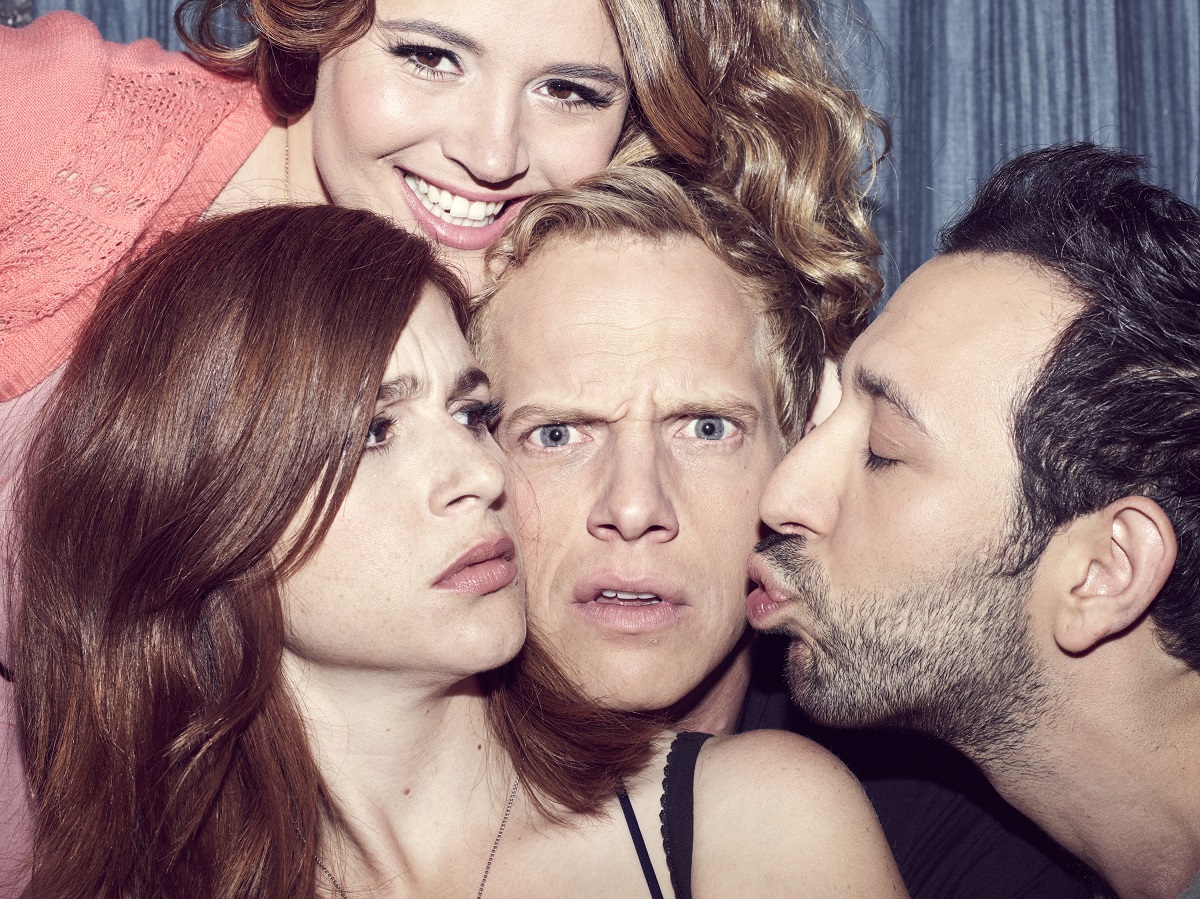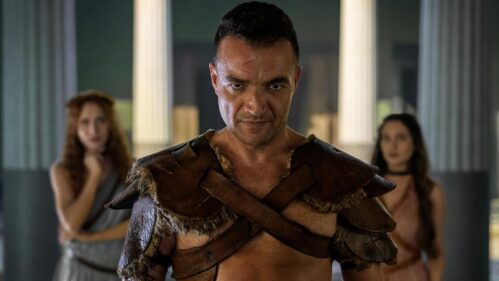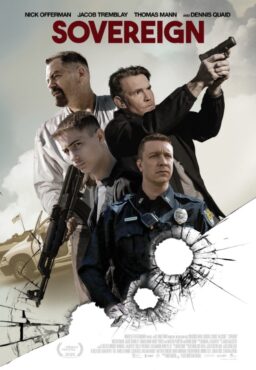The story of Jimmy Shive-Overly (Chris Geere) and Gretchen
Cutler (Aya Cash) continues tomorrow night, August 31st, on FXX as
we welcome back one of television’s smartest, funniest and all-around best
comedies, “You’re the Worst.” Created by Stephen Falk, “YTW” transcended its
solid first season to become something much deeper and more impressive in season
two, a year that focused not just on the unique blend of cynicism and devotion
common in modern twentysomethings but expanded its themes to present one of the
most realistic and moving depictions of depression in television history.
Instead of merely being satisfied with the “young people behaving badly” which
often defines the genre—and which this cast still does very well—the writers of
“You’re the Worst” took creative risks, making the characters feel more genuine
and emotionally resonant. The second season of “You’re the Worst” was
alternately laugh-out-loud hysterical and tear-producing emotional, without
ever feeling false in the former or manipulative in the latter. Everything here
comes from the characters, well-defined and brilliantly portrayed. It’s a tough
act to follow. Where do they go in season three?
Narratively, the key development at the end of season two
was that Jimmy finally told Gretchen that he loves her, although he denies
being sober enough in that moment for it to matter at the start of season
three. From the beginning, Jimmy has been one of those young men who claims
that he doesn’t believe in love and will never express it, and yet he clearly
has fallen deeply in love with Gretchen. The start of season three is about Jimmy
and Gretchen learning more about each other—those little quirks and background
details that often come after a
couple falls in love. For example, Gretchen doesn’t wash her legs in the shower
(which, yes, is greeted quizzically by Jimmy) and has never eaten a blueberry.
She even went to Bible Camp, and speaks Spanish. Meanwhile, Edgar (Desmin
Borges) faces issues of impotence related to new medication while Lindsay (Kether
Donohue) stares directly into the face of domesticity and, well, panics a bit.
All of the people are, like so many of us, trying to figure
out who they are both as individuals and as a couple. Can Lindsay still be
herself and meet the societal expectations of a wife and partner to her
husband, whom she’s only really with because of a surprise pregnancy? Can Edgar
keep Dorothy (Collette Wolfe) happy and himself stable at the same time? Ultimately,
this is the grand, brilliant theme of “You’re the Worst”—these people are
trying to discern how much of themselves they have to give up to be a partner
instead of just a solo act, and they’re the kind of people overly protective of
their flaws and hesitant to change the patterns of their lives. Like so many
people, they’re afraid. Gretchen was afraid all of last year that Jimmy would
leave if he knew about the depths of her depression. This year, she’s forced
into therapy with hysterical and insightful results (with a great guest turn
from Samira Wiley of “Orange is the New Black”). And I expect that Jimmy will
have to deal with some identity issues this season, especially after the action
of the final moments of the second episode sent for review.
Some have suggested recently that this current phase of the “Peak
TV Era” is being defined more by the risk-taking comedies than the dramas of
the mid-‘10s. At first, I dismissed the idea. But then I thought a little
deeper about the shows that have really surprised and impressed me lately and when you take out the limited series like “The Night Of” and “The People vs. OJ
Simpson,” many of them are comedies, including HBO’s “Veep” and “Silicon
Valley,” ABC’s “Black-ish,” Netflix’s “Bojack Horseman” & “Master of None”
and FX’s upcoming “Atlanta.” These are shows taking creative risks and finding
something deeper about the human experience than the anti-hero arc we’ve seen
so often in drama. And compared to those comedies, “You’re the Worst” is one of the best.













